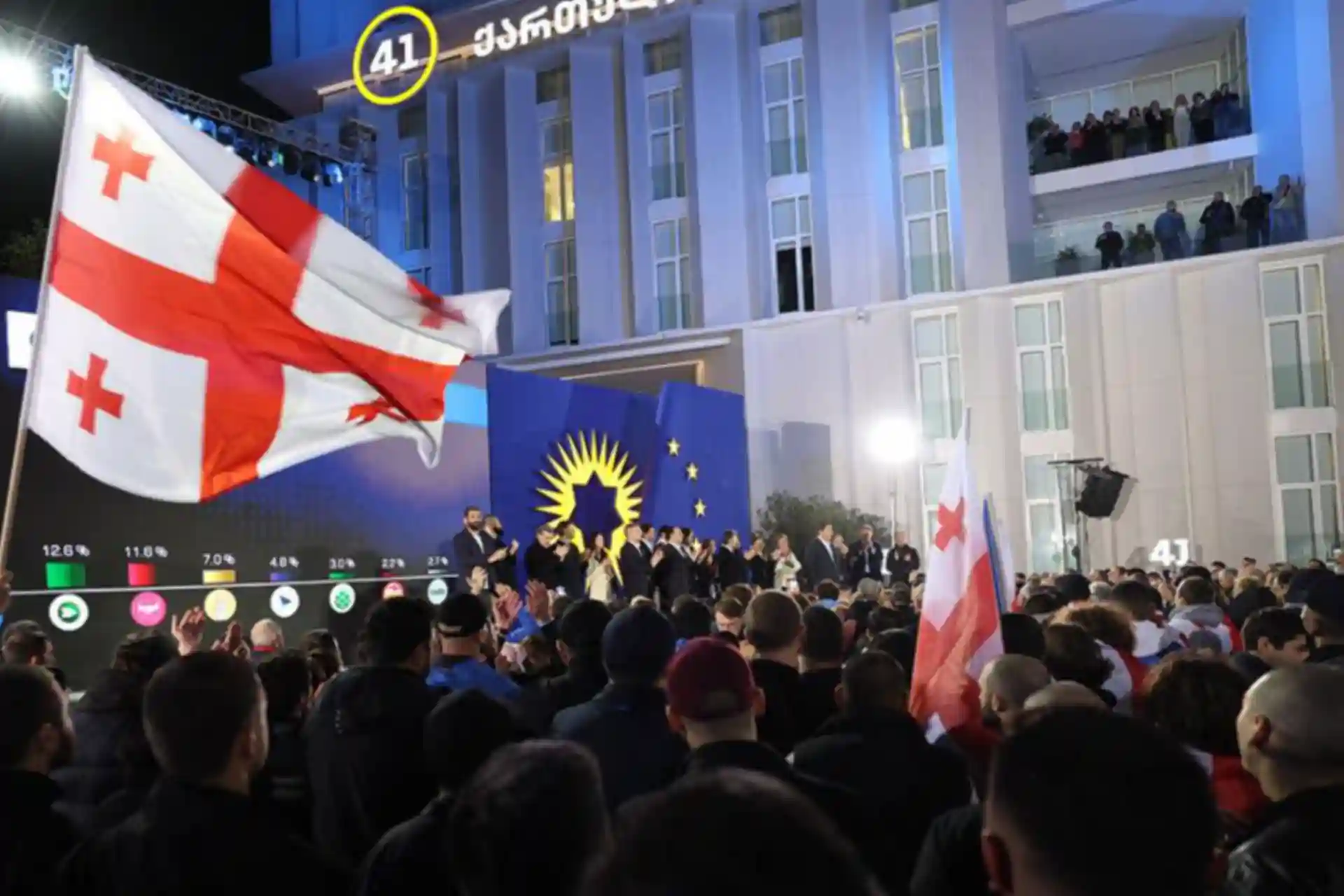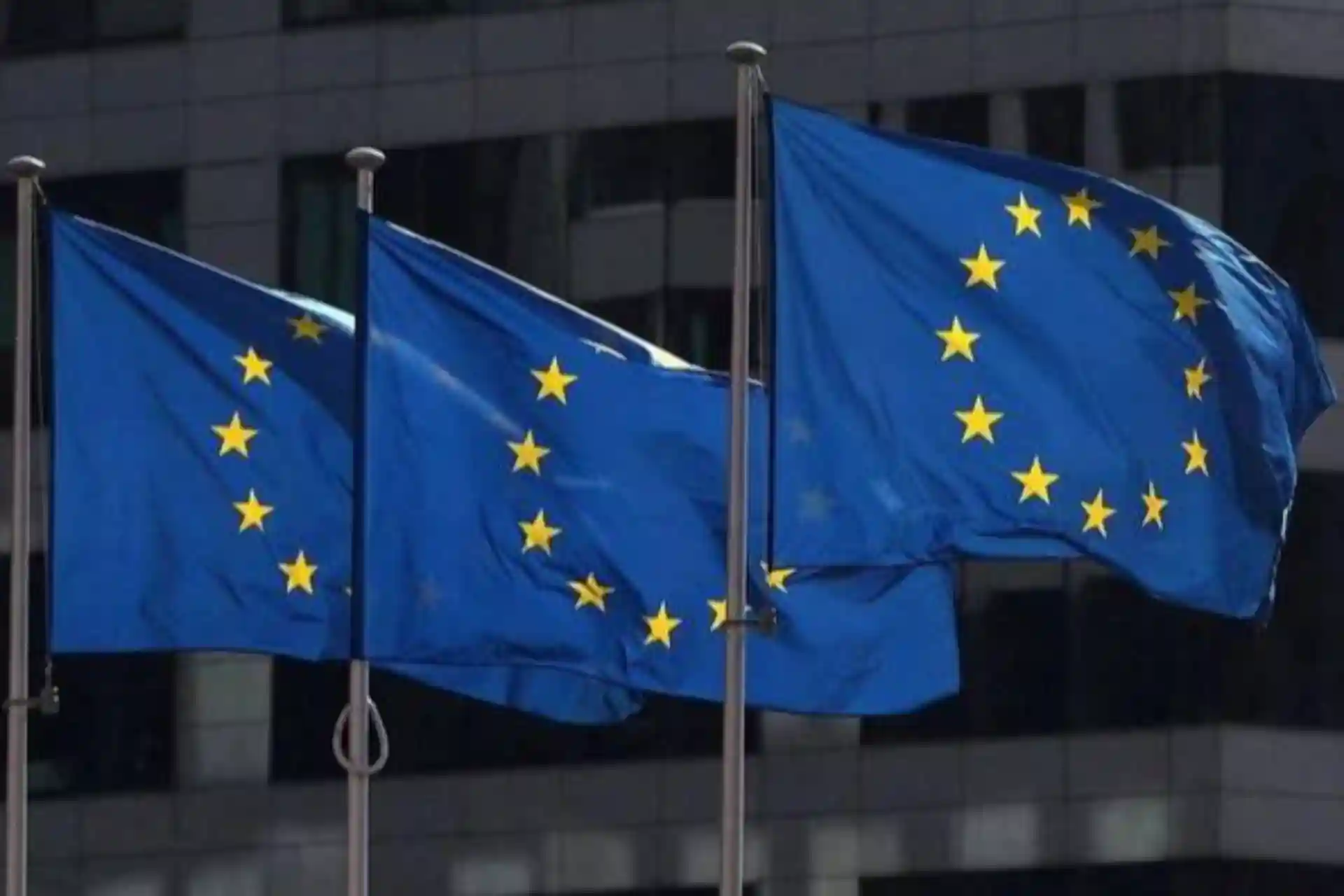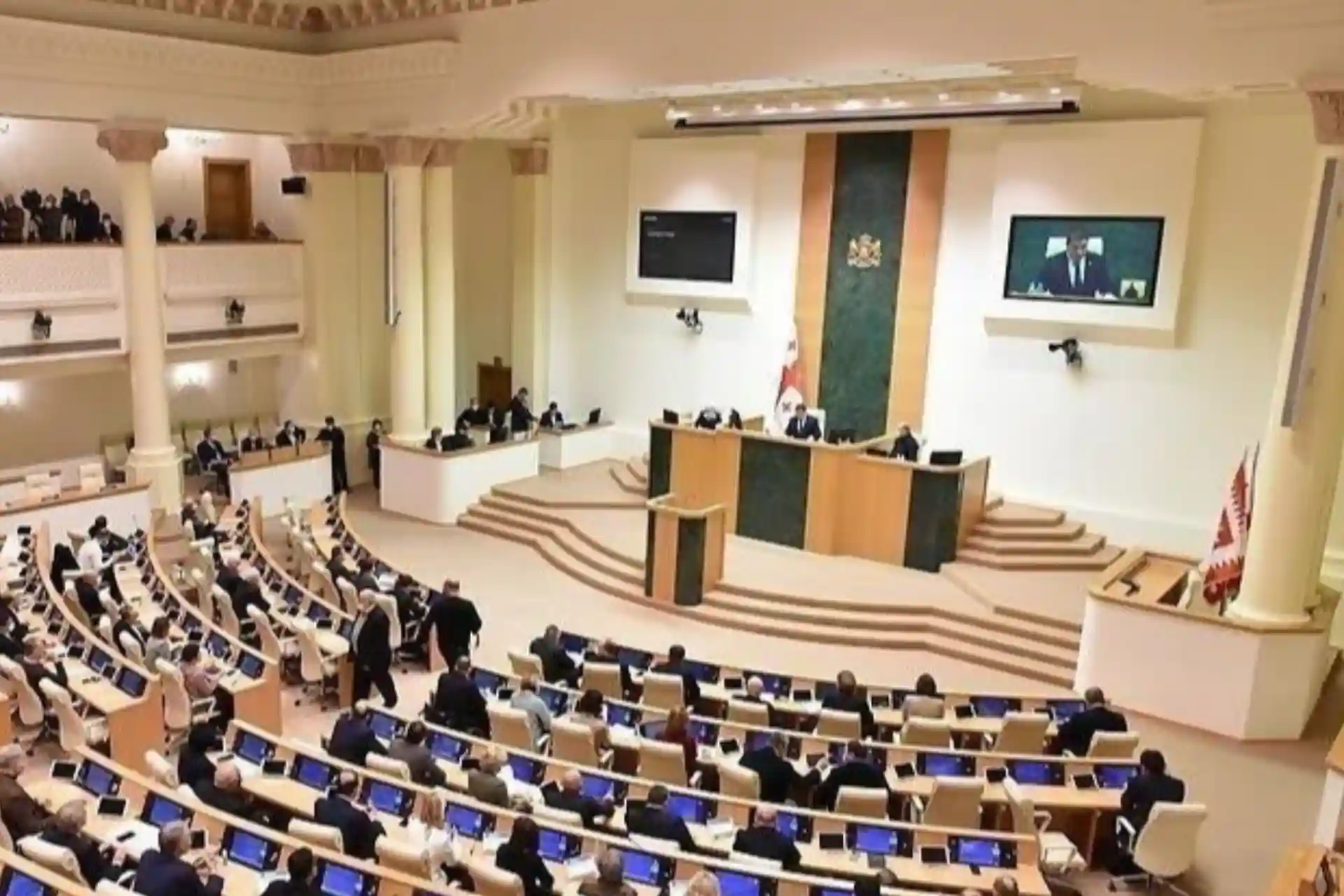Election conflict in Georgia: Did Russia conduct another "special operation"?
The elections held in Georgia on October 26 caused a political crisis. None of the opposition parties recognized the results of the vote. Local monitoring missions reveal widespread and widespread violations. The president of Georgia declared the elections illegal and called their conduct a " special Russian operation " .
According to the Chairman of the Central Election Commission Georgiy Kalandarishvili, the ruling party " Georgian Dream " has collected 54.08% of the votes, and the opposition alliance has collected 37.58% of the votes. He added that the elections were held in a peaceful and free environment.
As a result, Georgian Dream won 91 seats in the 150-member parliament - enough to hold power, but short of the absolute majority needed to constitutionally ban all main opposition parties.
"We won a great victory," Prime Minister Irakliy Kobakhidze said in his statement, accusing the opposition of "weakening the constitutional system of the country." Based on an earlier survey conducted by the American research company Edison Research, the result should have been different.
Opposition parties called the results "fraudulent", citing cases of falsification of ballot papers and intimidation of voters during the voting.
Tina Bokuchava, head of the opposition United National Movement (BMH), which campaigned on a pro-European platform, said the election results were "falsified" and the elections were "stolen".
"This is an attempt to steal the future of Georgia," he said, adding that the election results would not be recognized.
Nika Gvaramia, leader of the liberal Ahali party, called the voting process a "constitutional coup" carried out by the government.
"Georgian Dream" will not stay in power for long, he says.
Pro-Western President Salome Zurabishvili said there were "deeply disturbing cases of violence" in some polling stations.
Kremlin plan
Gela Vasadze, an analyst at the Georgian Center for Strategic Analysis, said that the Caucasus country is plunged into political instability for an indefinite period, and its hopes for the European Union are fading. The situation is revolutionary, but there are no charismatic leaders in the ranks of the opposition who can use popular discontent to implement political changes.
Earlier this year, mass protests erupted in Georgia, where the opposition accused the government of trying to curtail democratic freedoms and drag the country of four million into Russia's sphere of influence.
An observer at a polling station in the southeastern Georgian village of Sadakhlo told AFP that he had "witnessed a large number of ballot falsifications and cases of coordinated multiple voting in favor of 'Georgian Dream'."
The well-known investigative journalist Christo Grozev wrote on X social network:
"It seems that the Kremlin's plan to falsify votes is being implemented. "European intelligence services have obtained evidence that Russian secret services penetrated the central election office of Georgia. "
Georgian Dream, which has been in power since 2012, initially pursued a liberal pro-Western policy. But in the past two years, it has changed course.
His campaign was based on a conspiracy theory about a "global war party" controlling Western institutions and trying to draw Georgia into the Russia-Ukraine war.
In a country that suffered a Russian invasion in 2008, the party presented voters with scare stories about the threat of impending war that only the "Georgian Dream" could avert. Pariah's controversial "foreign agent" law aimed at civil society has sparked weeks of street protests and sharp criticism of Kremlin-style crackdowns on protests.
The move prompted Brussels to suspend Georgia's EU accession process, while Washington imposed sanctions on dozens of Georgian officials.
International relations
Western leaders, especially the US Secretary of State Anthony Blinken and the Chairman of the European Council, Charles Michel, expressed their serious concern about the situation in Georgia.
And Russia approached the election conflicts from the point of view of defense. Maria Zakharova, spokeswoman of the Ministry of Foreign Affairs of Russia, rejected accusations that Salome Zourabi was involved in Moscow's election manipulation and emphasized that Western intervention only destabilized the region. He said Brussels' criticism of the Georgian Dream party was hypocritical given Europe's internal political problems.
"The European Union should worry about its future, given its ongoing economic and social problems, especially its dependence on the United States," Zakharova said.
In addition, the Organization for Security and Cooperation in Europe (OSCE) also announced its preliminary observations. It stated that members of "Georgia Dream" exerted undue pressure on voters, resulting in an "unequal competitive environment" for opposition candidates. The OSCE stressed the need for local authorities to comprehensively investigate the alleged violations in order to ensure democracy.
Geopolitical scenario
Georgia's strategic location emphasizes its geopolitical importance in the South Caucasus. This region is an important link for Eurasian energy transit and economic integration.
The ruling Georgian Dream party, led by Prime Minister Irakli Kobakhidze, is striking a delicate balance between fostering ties with the West and managing a strained but inevitable relationship with Moscow.
Tbilisi's relations with the West continue to be officially based on cooperation. Bidzina Ivanishvili's party reiterates its intention to work in accordance with the standards of EU membership. However, recent criticism from Brussels and Washington of the Georgian Dream leadership's democratic backsliding and pro-Russian tendencies has strained the relationship.
The European Union recently suspended Georgia's membership candidacy. As a result, legislative actions were taken to limit freedoms and adapt Tbilisi to the Kremlin's policy. Senior EU officials such as Charles Michel are calling on Tbilisi to address governance issues and electoral irregularities and adapt to Brussels' democratic demands. The United States expresses similar concerns.
The geopolitical landscape has changed further since Russia's invasion of Ukraine, adding to Tbilisi's diplomatic woes. Historically, Georgia has had territorial disputes with Moscow, and Moscow continues to support the independence of Abkhazia and South Ossetia.
While the Georgian Dream party cautiously condemned Russia's actions in Ukraine, it did not impose sanctions to avoid making Moscow an enemy. This delicate position reflects Tbilisi's dependence on Russia as a trading partner, as most of Georgia's energy and agricultural exports go to Russian markets.
In this broad framework, the Georgian Dream Party emphasizes that maintaining economic and political stability requires a balanced approach to the interests of the West and Russia. The government defended its election victory as a mandate for "peace and development," but ongoing civil unrest and foreign criticism could complicate that plan.
Summary
Given the disputed election results, the situation in Georgia may develop in several directions:
1. Internal unrest and political crisis: If the protests continue, they could escalate into wider conflicts, similar to those seen in Ukraine and Armenia, with potential consequences for national stability and governance.
2. Political stability and a diverse foreign policy: The Georgian Dream party can strengthen its position and use its powers to balance between Western integration and important economic ties with Russia. In this scenario, Tbilisi adopts a dual approach strategy, carefully managing its relations with Brussels, Washington and Moscow.
3. Confrontation between Brussels and Tbilisi: A strong EU response could prompt Tbilisi to reconsider its policy, possibly pointing to stalled accession talks.



